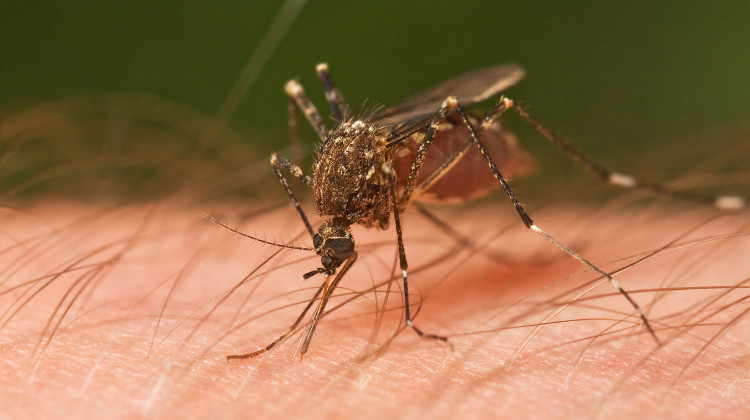A person has died in Elkhart County from a rare but deadly mosquito-borne virus that often affects horses. State health official say it's the first human case in Indiana in more than 20 years and only the fourth reported since 1964.
Eastern equine encephalitis or EEE has already been found in more than a dozen horses in northern Indiana in 2019. Symptoms of the virus include chills, fever, body aches, and joint pain. Some develop a severe form of the disease that causes brain inflammation, nearly a third of all cases are fatal.
Though the Centers for Disease Control and Prevention says only a handful of people around the country contract EEE every year, at least 10 cases have been reported in Michigan alone.
The Indiana State Department of Health has the following recommendations for Hoosiers:
- Avoid being outdoors when mosquitoes are active (especially late afternoon, dusk to dawn and early morning)
- Use an Environmental Protection Agency-registered insect repellent containing DEET, picaridin, IR3535, oil of lemon eucalyptus or para-menthane-diol on clothes and exposed skin
- Cover exposed skin by wearing a hat, long sleeves and long pants in places where mosquitoes are especially active, such as wooded areas
- Install or repair screens on windows and doors to keep mosquitoes out of your home
Hoosiers also are encouraged to eliminate mosquito breeding sites by doing the following:
- Discard old tires, tin/aluminum cans, ceramic pots or other containers that can hold water
- Repair failed septic systems
- Drill holes in the bottom of recycling containers left outdoors
- Keep grass cut short and shrubbery trimmed
- Clean clogged roof gutters, particularly if leaves tend to plug up the drains
- Frequently replace the water in pet bowls
- Flush ornamental fountains and birdbaths periodically
- Aerate ornamental pools or stock them with predatory fish
Contact Rebecca at rthiele@iu.edu or follow her on Twitter at @beckythiele.
Indiana Environmental reporting is supported by the Environmental Resilience Institute, an Indiana University Grand Challenge project developing Indiana-specific projections and informed responses to problems of environmental change.
 DONATE
DONATE










 Support WFYI. We can't do it without you.
Support WFYI. We can't do it without you.